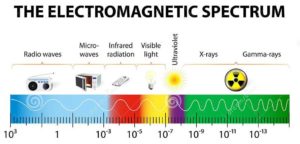The corona virus, covid 19, has now become a pandemic. What was once isolated to a single province in China has now spread globally. Country after country is now being affected. At the writing of this article there are presently 155 countries and territories around the world and 1 international conveyance (the Diamond Princess cruise ship harbored in Yokohama, Japan) affected by the covi9 virus.

Many people have chosen to wear masks as a means of protection
The effect of the virus on the global community is unprecedented in the modern era. It has resulted in the closure of national borders; schools; businesses; places of worship; etc. Cruise ships and airlines have had to cancel scheduled trips. Grocery shelves are empty and there have been many instances of price gouging in supermarkets and pharmacies around the world.
How Is The Covid 19 Strain of Corona Virus Spread?
The covid 19 is primarily spread through person to person contact or though contact with an affected surface. The virus can survive outside the human body for a lengthy period.
- Up to 24 hours on cardboard.
- Up to two or three days on plastic and stainless steel.
- It also remained viable in aerosols—attached to particles that stay aloft in the air—for up to three hours.
That’s all basically in line with the stability of SARS, the coronavirus that caused an outbreak in the early 2000s, the researchers note.
What Is The Incubation Period
From the time that you catch the virus to the display of its first symptoms is between 2-14 days. This represents the current official estimated range for the novel coronavirus COVID-19.
One case with an incubation period of 27 days has been reported by Hubei Province local government on Feb. 22. In addition, a case with an incubation period of 19 days was observed in a JAMA study of 5 cases published on Feb. 21. An outlier of a 24 days incubation period had been for the first time observed in a Feb. 9 study.
WHO (World Health Organization) said that this could actually reflect a second exposure rather than a long incubation period, and that it wasn’t going to change its recommendations.
Period can vary greatly among patients.
Mean incubation period observed:
- 3.0 days (0 – 24 days range, study based on 1,324 cases)
- 5.2 days (4.1 – 7.0 days range, based on 425 cases).
- Mean incubation period observed in travelers from Wuhan:
6.4 days (range from 2.1 to 11.1 days).
What Are Some Of The Symptoms?
Though the virus in many ways matches flu like symptoms, there are things you can look for to better detect if you have the virus or not.

COVID-19 typical symptoms are:
- Rather flu like, including fever and cough. It usually starts with a fever followed by a dry cough.
- In some patients – particularly the elderly and others with other chronic health conditions – these symptoms can develop into pneumonia, with chest tightness, chest pain, and shortness of breath.
- After a week, it can lead to shortness of breath, with about 20% of patients requiring hospital treatment.
Notably, the COVID-19 infection rarely seems to cause a runny nose, sneezing, or sore throat (these symptoms have been observed in only about 5% of patients). Sore throat, sneezing, and stuffy nose are most often signs of a cold.

Are You At Risk?
Everywhere you look there are people walking about with masks, some even wearing gloves all in a desperate attempt to Avoid catching this deadly virus. But how at risk are you really?
In 80.9% of the cases it is rather mild and the patient will recover in two weeks or less while resting at home. In about 13.8% the symptoms are severe, developing diseases including pneumonia and shortness of breath. Only 4.7% are critical and can include: respiratory failure, septic shock, and multi-organ failure.
in about 2% of reported cases the virus is fatal.
Pre-existing illnesses that put patients at higher risk:
- cardiovascular disease
- diabetes
- chronic respiratory disease
- hypertension

To protect yourself and your family follow your government’s guidelines, wash your hands as advised and build your immune system with lots of vitamin D and drink lots of water. I would also like to advise that sugar breaks down your immune system so you should keep that in mind.
[cvct]





